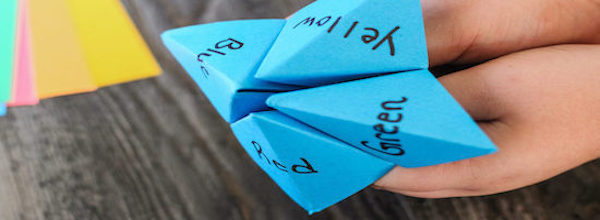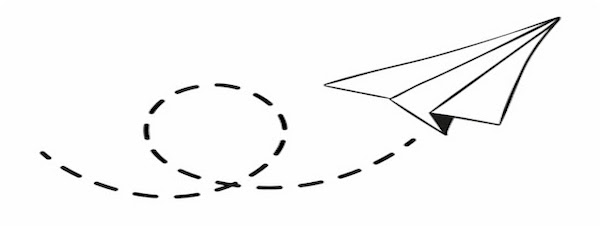Navigation:
Home Page
3D Swan
Kirigami
Action origami is the type of origami that allows the finished model to be interactable and be able to do something. The most obvious action models are the paper airplanes. But the oldest action models have been with us for over 400 years. Other common models of the action origami are the "cootie catcher" or "fortune teller".

The cootie catcher may have been invented in the the early 1600's. This device has had many names: "salt cellar", "fortune teller", "flipper", and "scrunchies". As well as having many names, the cootie catcher has two functions: it can be used as a toy or, when inverted, as a four-compartment container. Although the cootie catcher and the fortune teller are folded in the same way, they are decorated differently. A cootie catcher is decorated with dots whereas the fortune teller is labeled with numbers or colors and messages.

Most historians believe that the Chinese were the first to build paper aircraft. Since they are credited as the early inventors of paper, it does seem logical that they would be the first ones to find a creative use for the substance. In France, during the 1700s, the Montgovier brothers used paper to make hot-air balloons. In 1783, they made the first human-carrying hot-air balloon from a paper-lined cloth. Leonardo da Vinci wrote that he used parchment paper to build models of his ornithopter (helicopter).

The flapping bird may have been invented near 1870. It is suggested that a traveling magician, unable to remember the paper crane, invented the flapping bird by accident.

Traditional action origami models like the flapping bird, the shuriken, and the jumping frogs (shown above) are relatively easy to fold.